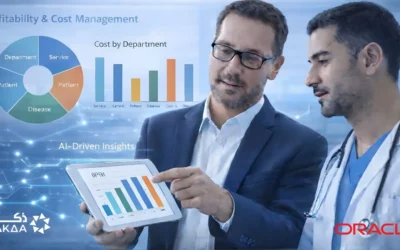Technological innovation, impact on all sectors and areas of life
There are many technological developments in recent years that have implied a true revolution in all sectors and areas of people’s lives. From the appearance of the Internet, its diffusion and massive use, to the use of GPS, office tools or other innovations applicable to a multitude of sectors.
Without a doubt, there are currently still several innovations that are having a relevant impact on people’s lives, in professions and multiple professional sectors, and these technologies feed off each other, that is, every time an innovation manages to make a leap in their field, allows the others to take additional or greater leaps. One of those that has generated the most expectation and will continue to generate in the future, both because of its potential benefits and because of the uncertainty regarding the impact it will have on our lives and how they develop, is artificial intelligence.
The automation of tasks based on Artificial Intelligence
In fact, its very existence generates a lot of uncertainty and expectation, and even fear in some, mainly due to the potential loss of jobs it may generate. But not only its existence, but also how it is used is so relevant, as well as automation based on artificial intelligence and the impact it will have on the world of work, workers conditions and the relationship with humans.
Impact of AI-based automation in finance
Without a doubt, one of the sectors that will also be affected by automation based on artificial intelligence is finance. This sector was greatly impacted by the creation and massive dissemination of office tools, such as spreadsheets (mainly Microsoft Excel, but also others much less used such as Sheet, from Google). Currently, this tool dominates the calculation and analysis of the financial sector as a whole and a multitude of corporate professions, and is used to perform control functions as well as analysis or valuation of projects or companies, as well as organization of tasks or graphic designs.
However, these types of tools served to automate data processing and calculation, without there being intelligence behind the computer systems that analyzed them, beyond repetitive or programmed/formulated tasks by the human who used them. That is, conditions could be introduced for which the calculation tool had to inform us of certain values higher or lower than a certain figure, use filters, select those elements that met multiple conditions or make valuations using valuation or profitability techniques such as IRR or NPV.
Although this has been extremely useful and has improved financial functions, both internally in companies and at the audit and control level, the financial analyst had to analyze and draw conclusions alone, using these tools.
Through artificial intelligence, this can change radically. Artificial intelligence learns by observing the use made of certain facts, whether videos or audios. Currently, artificial intelligence is being able to “observe” the financial data provided by the aforementioned office tools and, from there, draw conclusions.
If artificial intelligence can also automate these financial analysis processes, and it will surely happen (it is simply a matter of time), this will revolutionize financial functions within the corporate world and jobs in auditing and financial consulting companies, which they are the main companies that perform financial analysis and are usually the “school” of the professionals who do these tasks in companies.
This revolution could cause the loss of jobs in these sectors, or simply reductions in the value added by these professionals and, consequently, in their salaries. As always, this will depend on the companies’ approach and the appropriate use of these technologies. A human will probably always be needed to complete a financial analysis, even though there are increasingly more automated processes. There are differences between what an artificial intelligence and a human intelligence can do. While financial analysis may seem totally objective, there are other considerations that have impacts on the finances of a company that artificial intelligence cannot adequately value, such as the relationship or interests that a company’s managers or shareholders have, the consideration of other operations that are being planned in the company (M&A processes, launch of new products, signing a relevant contract with a client/supplier, etc.).
Since this contextual analysis, much more subjective than numerical analysis, cannot be carried out by artificial intelligence, precisely because of the subjectivity that characterizes it, this will mean that it cannot be fully completed by artificial intelligence. But that doesn’t mean that artificial intelligence can perform many more tasks than are currently automated.
Companies that realize this, the value that artificial intelligence can bring in the field of finance, will be able to act with a strategic advantage. Investing in this type of technology, and doing it properly, can be a competitive advantage to be more productive by reducing finance departments, but also by incorporating artificial intelligence that improves processes and financial analysis. This would also allow companies to concentrate on those parts of the analysis processes with the greatest added value, once those that provide the least added value have been automated.
However, not just any investment in automation through artificial intelligence is worth it. Given that this technology is currently very little developed, there is a high risk of making an inappropriate investment, by not designing it correctly or by not investing in the artificial intelligence provider that is appropriate or optimal for the company. This can mean that, despite having invested in strategic processes for the company and with a correct long-term vision, relevant company resources have been used in tools that are not useful or that can hinder the company’s progress and can block any future moves to improve.





